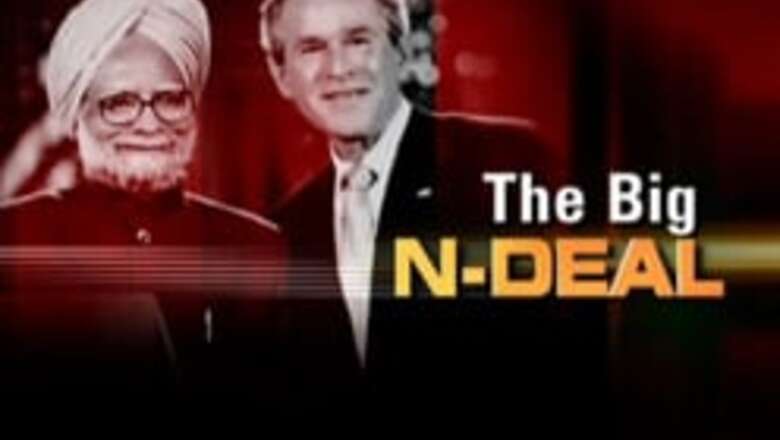
views
Washington: Arms control advocates urged changes in the Indo-US nuclear cooperation agreement on Tuesday as the US Senate prepared to resume action on the long-stalled deal.
The initiative, allowing nuclear-armed India access to US nuclear fuel and reactors for the first time in three decades, is expected to be taken up by the Senate as early as Wednesday, Senate sources said.
Meanwhile, a new report by the Congressional Research Service (CRS), which examines issues for Congress, found that while India does not want Iran to have nuclear weapons, New Delhi's "views of the Iranian threat and appropriate responses (to that threat) differ significantly from US views".
President George Bush has praised the agreement as the core of a new US relationship with India after years of estrangement.
Critics counter that India's close ties with Iran, a long-time US adversary that Washington accuses of developing nuclear weapons, undercuts that argument.
"It is clear that on the issue of preventing Iran from going nuclear, and on the crucial issue of nonproliferation, India's record is not encouraging," said US Rep. Ed Markey, a Democratic leader of the US House of Representatives task force on nonproliferation.
The 18 arms control advocates, in a letter to senators, said that without amendments, the proposed legislation before the Senate "would have far-reaching and adverse effects on U.S. nonproliferation and security objectives."
Signers include Robert Einhorn, former assistant secretary of state for nonproliferation; Lawrence Korb, former assistant secretary of defense; professor Frank von Hippel of Princeton University, Daryl Kimball of the Arms Control Association and John Isaacs of the Council for a Livable World.
They said that before nuclear cooperation begins, the United States should determine that India has stopped producing fissile material and that the civil nuclear trade does not in any way assist India's nuclear weapons program.
In addition, the United States should be able to halt cooperation if India tests a nuclear weapon, they added.
The CRS report, by analyst Susan Squassoni, pulls together many previously reported details about India-Iran ties.
It said India and Iran engaged in "very limited" nuclear, chemical and missile-related transfers over the years and noted that between 1998 and 2003, the United States imposed nonproliferation sanctions on several Indian companies for chemical-and biological-related transfers to Iraq.
In 2004, Washington imposed sanctions on two Indian scientists for nuclear-related transfers to Iran and in 2005 and 2006, a total of four Indian companies were sanctioned for chemical-related transfers to Iran, the report noted.
The House in July overwhelmingly approved the Bill, which changes US law to allow for nuclear cooperation with India. But the Republican-led Senate let the Bill languish when the congressional session recessed last month.
Senate leaders have predicted the agreement, once put to a vote, will be overwhelmingly approved. Congress returned this week for a "lame duck" session after the November 7 elections.
If the India Bill is not completed this year, the new Democrat-led Congress will have to start again when it convenes in January.













Comments
0 comment